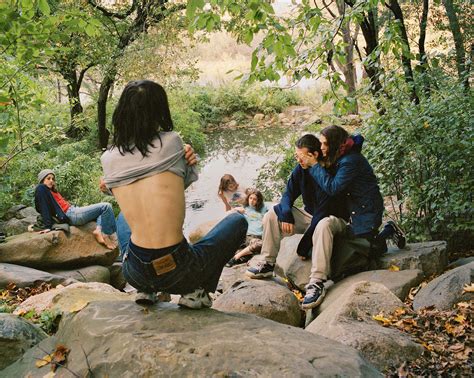A Quote by Nikola Tesla
Archimedes was my ideal. I admired the works of artists, but to my mind, they were only shadows and semblances. The inventor, I thought, gives to the world creations which are palpable, which live and work.
Related Quotes
When I first came to New York, in the '70s, artists were certainly divided about the Andy Warhol persona, and about the work. I thought it was utterly cool - I thought the Factory was utterly glamorous - but there were a lot of artists I really admired and respected who were older that kind of dismissed it, couldn't get it, and felt that there was a lack of seriousness about it.
Every really able man, in whatever direction he works - a man of large affairs, an inventor, a statesman, an orator, a poet, a painter - if you talk sincerely with him, considers his work, however much admired, as far short of what it should be. What is this Better, this flying Ideal, but the perpetual promise of his Creator?
It is my eyes which see, and the sight of my eyes grants beauty to the earth. It is my ears which hear, and the hearing of my ears gives its song to the world. It is my mind which thinks, and the judgement of my mind is the only searchlight that can find the truth. It is my will which chooses, and the choice of my will is the only edict I must respect.
In this same tradition, beauty is inextricably bound up with the principles of order and harmony believed to underlie the cosmos. Artists in the Classical tradition, inspired by Platonic idealism, strove to create images that represented not the world of particulars-with all its defects-but an ideal image conceived in the mind, which was taken as representing some absolute, pure, ideal form of which all particular, material forms are but a mere shadow.
During my lifetime I have dedicated myself to this struggle of the African people. I have fought against white domination, and I have fought against black domination. I have cherished the ideal of a democratic and free society in which all persons live together in harmony and with equal opportunities. It is an ideal which I hope to live for and to achieve. But if needs be, it is an ideal for which I am prepared to die.
We are finally living in Plato's cave, if we consider how those who were imprisoned within the cave - who could do nothing but watch those shadows passing on the back wall - were convinced that those shadows were their one and only reality. I see a profound similarity to all this in the epoch we're now living in. We no longer live simply through images: we live through images that don't even exist, which are the result not of physical projection but of pure virtuality.
An artist never works under ideal conditions. If they existed, his work wouldn't exist, for the artist doesn't live in a vacuum. Some sort of pressure must exist. The artist exists because the world is not perfect. Art would be useless if the world were perfect, as man wouldn't look for harmony but would simply live in it.
It isn't a hunch but the subconscious mind, which is the creative mind, at work. That is the mind which makes artists do things without their knowing how they came to do them. Perhaps with me it was the cumulative effect of a lot of little things individually insignificant but collectively powerful.




































